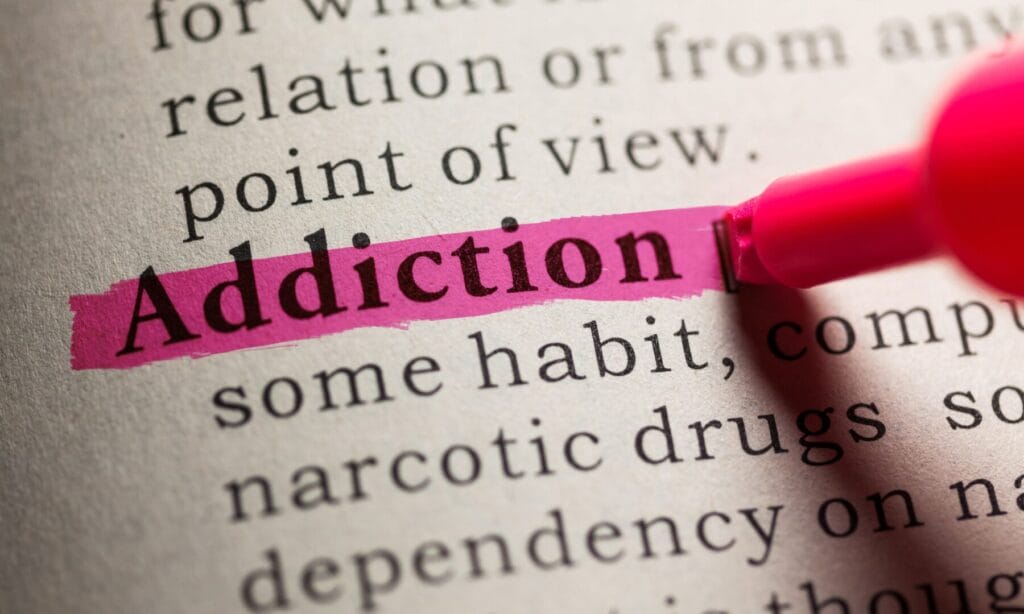What is Vivitrol?
Vivitrol injections can help reduce (or eliminate) the “high” that comes from getting intoxicated on alcohol or using an opioid drug. Vivitrol is the only approved drug to address opioid dependence that is not a controlled substance.1 Many people who struggle with opioid addiction or an alcohol use disorder safely use Vivitrol to prevent relapse.
Vivitrol is a medication that blocks the pleasurable feelings of using opioid drugs or alcohol. Vivitrol is also known by its generic name, naltrexone.1 Unlike Narcan, naltrexone injections do not reverse the effects of opioid overdose. Vivitrol injections are part of medication-assisted addiction treatment programs for drug or alcohol addiction. Because Vivitrol is only available via injection, it is only available from a trained medical professional.
Vivitrol injections are an extended-release version of the generic naltrexone. Naltrexone medication is an opioid antagonist.1 It works by attaching to the opioid receptors in the brain, inhibiting opioid drugs or alcohol from doing the same. Vivitrol remains active for up to one month, helping reduce withdrawal symptoms and limit relapse during addiction treatment.
Vivitrol Treatment Uses
Vivitrol treatment helps with alcohol use disorders (alcoholism) and opioid use disorder treatment.2 As part of the medication-assisted treatment (MAT) program, Vivitrol treatment of opioid dependence helps prevent relapse in those who have an opioid addiction and have stopped using as part of a rehab program. Vivitrol treatment for opioid addiction received approval from the Food and Drug Administration (FDA) in 2010 (after its approval for use in alcohol addiction treatment).
What Does Vivitrol Help?
Vivitrol treatment can prevent someone in rehab (or recovery) from experiencing cravings or the “need” to use opioid drugs. Although Vivitrol is an excellent complementary treatment that helps prevent relapse, it is crucial to complete detox and be free from withdrawal symptoms before beginning Vivitrol treatment.
Vivitrol works by removing opioids from the opioid receptors in the brain. Therefore, if you are still actively undergoing medically assisted detox and using a drug like buprenorphine, Vivitrol will reverse the effects of the medication, worsening withdrawal symptoms.
Another use of Vivitrol medication is as a treatment for alcoholism. In fact, Vivitrol first received FDA approval in 2006 as a drug to help reduce relapse rates in those recovering from alcohol addiction.5 Research shows that using Vivitrol in conjunction with comprehensive therapy leads to higher abstinence rates and lower relapse rates.
Vivitrol for alcohol abuse reduces the urge to consume alcohol. This can help with cravings, relapse, and trigger management for someone in rehab. Depending on the individual and the severity of their addiction, Vivitrol treatment for alcoholism may help achieve lasting sobriety.
Psychological Side Effects
Alcohol side effects on the brain include:
Brain Changes
Alcohol interferes with the brain’s communication pathways. Heavy drinking can change how the brain looks and works overtime, leading to poor mental health and cognitive functioning.
Alcohol-Induced Mental Health Conditions
Alcohol abuse can lead to mental health issues such as depression or anxiety. Excessive use of alcohol can also exacerbate existing mental health problems.
Alcohol Dependence
Excessive drinking over a long period can lead to dependence on alcohol. Alcohol dependence will make someone feel like they can’t function normally without drinking.
Alcohol Withdrawal
When someone has a physical alcohol dependence, they will experience withdrawal symptoms if they stop drinking. This is one of the main side effects of alcohol detox.
Vivitrol Side Effects
Vivitrol treatment is highly effective as part of a medication-assisted treatment program, but there are side effects of Vivitrol use. Vivitrol medication has both common and potentially severe side effects.3 Typical or common side effects of Vivitrol injection treatment include:
- Joint pain
- Muscle cramping
- Difficulties sleeping
- Cold symptoms
- Nausea
- Appetite loss
- Dizziness
- Drowsiness
- Vomiting
Severe Side Effects
In addition to common side effects of Vivitrol treatment, severe side effects can occur. Serious side effects of Vivitrol injection treatment include allergic reactions, injection site reactions, and overdose. Indications of an allergic reaction to Vivitrol may consist of:
- Difficulties breathing
- Swelling of the face, lips, tongue, or throat
- Chest pain
- Wheezing
- Hives
In addition to a systemic (your entire body) reaction, localized injection site reactions may occur.
Withdrawal Symptoms
Another side effect of Vivitrol is potential opioid withdrawal symptoms. It is crucial to abstain from opioid use while participating in a Vivitrol treatment program. Using an opioid simultaneously with Vivitrol injection treatment can lead to opioid withdrawal symptoms or overdose. It is also essential to talk to your Vivitrol treatment providers and doctors about any other medications, vitamins, or herbal supplements you use as they may interact with Vivitrol.
Vivitrol Overdose
Vivitrol injections are administered by a healthcare professional, so the risk of overdose is dramatically reduced. However, understanding the symptoms of Vivitrol overdose can help you seek emergency medical attention should you experience an overdose. It is important to watch for nausea, dizziness, stomach pain, drowsiness, or other reactions.
Additionally, there are few Vivitrol withdrawal symptoms as the drug itself is not an opioid. Vivitrol medication remains detectable in your system for 25-50 days helping you control opioid or alcohol cravings for a month or more while working towards sobriety in an addiction treatment program like San Diego Detox.
Vivitrol Treatment at San Diego Detox
Vivitrol helps those in recovery at a treatment center like San Diego Detox by significantly reducing the effects of cravings and other challenges that can lead to a relapse. One of the most challenging parts of ongoing addiction recovery is the cravings accompanying triggering situations. Incorporating Vivitrol into recovery, whether for opioid addiction or alcohol addiction, may help to significantly reduce (if not eliminate) challenges to your sobriety.
Detoxing From Vivitrol
Before beginning a Vivitrol treatment program, it is essential to detox from all substances entirely. The way Vivitrol works in your system requires you to be free from all opioid drugs before your first injection.
Beginning Vivitrol treatment while still under the influence of opioids can lead to powerful and potentially dangerous withdrawal symptoms. Dosing guidance from the Food and Drug Administration suggests being at least ten days free from opioid withdrawal symptoms before beginning a Vivitrol treatment program.
How Long Does Treatment Take?
Vivitrol injections are extended-release medications meaning they are designed to enter your body and last for some time. In the case of Vivitrol, injections deliver medicine for 30 days or four weeks. Maintenance doses are recommended every four weeks for at least one year. The exact duration of your treatment program will depend on your specific treatment needs. The cost of Vivitrol injections varies as well. Remember that many insurance programs may cover some or all the cost of treatment.
The best way to learn more about how Vivitrol injections can help you is to contact a treatment program specializing in Vivitrol treatment. At San Diego Detox, a treatment team member will work with you to determine your treatment needs and help you understand the steps of alcohol or opioid addiction recovery. If you are ready to begin your sobriety journey, contact us today to learn how Vivitrol can help with recovery.
Resources
https://www.niaaa.nih.gov/alcohols-effects-health/overview-alcohol-consumption/what-standard-drink
https://www.drugfreeworld.org/drugfacts/alcohol/short-term-long-term-effects.html
https://www.ncbi.nlm.nih.gov/pmc/articles/PMC2913110/
https://www.webmd.com/mental-health/addiction/understanding-alcohol-abuse-symptoms






